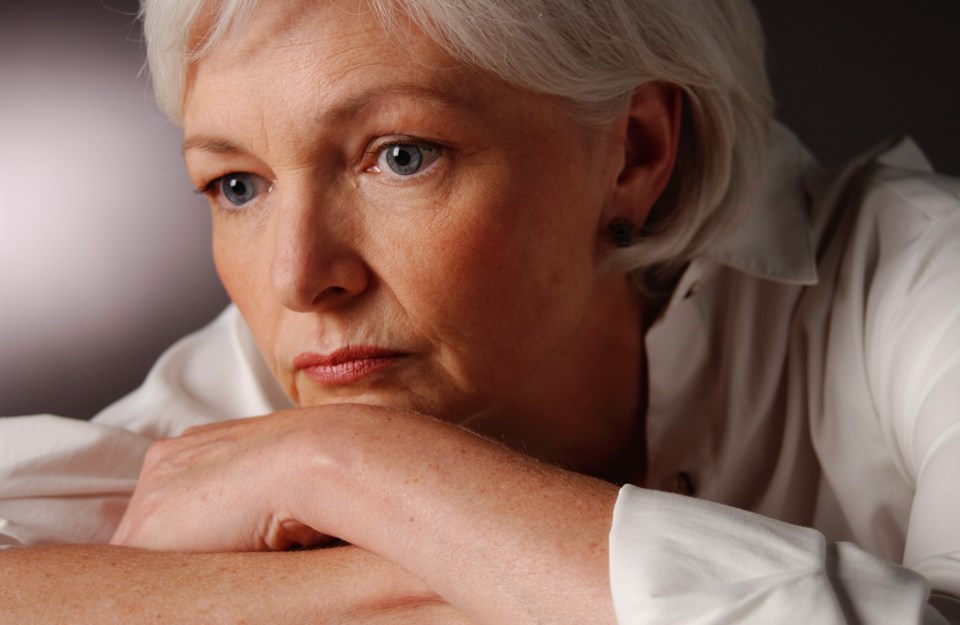By Dr. Easter Yassa
Special to the Cochrane Eagle
*The individuals in this story are fictional composites and any resemblance to anyone existing now or in the past is purely coincidental.
Susan* looks at me with tears in her eyes. She has just shared with me the anxiety she carries with her on a day to day basis. Her anxiety is robbing her of enjoyment in her life, interfering with her job, and causing conflict in her marriage, and after battling it alone for years she has slipped into despair and, not surprisingly depression has begun. As she told her story, hidden chapters of her mother’s depression, her father’s exacting standards, her parents’ divorce, and being bullied in junior high are briefly touched on, to be revisited and examined another session. Susan pauses and looks down at her hands. “I feel so embarrassed,” she says, “I shouldn’t be having such a hard time. There are people around the world that are dealing with way worse things than I am. What about the refugees, or those poor people in Australia, or those families who lost someone on Ukrainian Flight 752. Mine are ‘First World problems’. My suffering is not as bad as theirs. I shouldn’t be here.”
This is something I often hear clients say. In so much of the world right now there are wars, starvation, malnutrition, poor sanitation, natural disasters, illness, and acts of violence. So many human beings are living in terror, pain, sadness, grief and despair. It’s hard not to compare our suffering to that which we see splashed on TV screens and online. Reflecting on the sheer luck of our existence we can feel shame, and tell ourselves we have no right to complain, no right to suffer, no right to need help.
And this is a real tragedy.
While a healthy reality check of what we have to be grateful for can be a meditative practice that calms and soothes the soul, I have yet to meet a single person, professionally or personally, who has reported healing through shame and denial. Try to tell suffering that it has no right to be there and it does not go away. If anything it persists in the shadows, deepening and festering. Try to tell someone they have no right to their pain when others have it worse and you’ll find they stop talking but aren’t comforted or at peace. When we treat suffering as relative we tell ourselves a lie. Suffering is not relative – it is absolute. Our body and our brain doesn’t slice up and weigh our suffering against that of another. Suffering doesn’t work that way. Suffering is suffering is suffering, regardless of the cause, regardless of the reason.
And we pay a much higher price than we may realize when we tell ourselves we have no right to our suffering or to need help for it. When we do not take ownership of our pain, when we shame ourselves for it and deny its existence, pain is passed on. When we do not take responsibility for our wounds and our suffering it squirts out unexpectedly and unintentionally on those we care about, our children, our partners, our coworkers. It creates rifts. It wounds others. We may think we are doing the noble thing by denying our suffering in the face of the worlds, but all we are doing is adding to the suffering of the world as we saddle our children with the consequences and the clean-up.
Your denial of your suffering will not build a better world. Only your commitment to healing yourself will. And so we must ask ourselves what can we do with our suffering? How can we transform it? What purpose can we find in our suffering, and how can we allow it to transform us in ways that are meaningful and move our world forward in healing and peace. Maybe that means seeking support, talking to a friend, or learning new skills that change the trajectory of your and your family’s story. Maybe it means sharing with another that they are not alone or allowing your own pain to minister and connect you to others. And in so doing you make meaning from your suffering. In working towards alleviating your suffering you are alleviating suffering in the world.
Those in crisis around the world right now would give their life for your “First World problems”. Consider honouring them by doing whatever it takes to live your best “First World” life.
Easter Yassa, Ph.D., is a Registered Psychologist with a private practice in Cochrane. You can learn more about Dr. Yassa and how she helps adults at www.imatter2.com. Dr. Yassa can occasionally be seen chasing her toddler around local grocery stores and behaving awkwardly in public in order to protect someone’s confidentiality.




